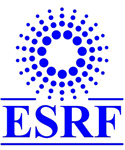The European Synchrotron, the ESRF, is an international research centre based in Grenoble, France.
Through its innovative engineering, pioneering scientific vision and a strong commitment from its 700 staff members, the ESRF is recognised as one of the top research facilities worldwide. Its particle accelerator produces intense X-ray beams that are used by thousands of scientists each year for experiments in diverse fields such as biology, medicine, environmental sciences, cultural heritage, materials science, and physics.
Supported by 22 countries, the ESRF is an equal opportunity employer and encourages diversity.
Project Title: Operando X-ray and Neutron Studies of Catalytic Dehydrogenation in LOHC Technology We are seeking a candidate to join a PhD programme to employ the analytic capabilities of European Synchrotron Radiation Facility (ESRF) X-ray source and Institut Laue Langevin (ILL) neutron source for the further development of liquid organic hydrogen carrier (LOHC) technology. LOHCs allow storing H2 by hydrogenation of organic compounds and subsequent extraction by catalytic dehydrogenation in a fully reversible fashion. Central for the further development of this technology are improvements in the heterogeneous catalysts used for the dehydrogenation process.
The industrial partner aims at making the technology more competitive by advancing the catalytic system, e.g., by catalytic modifiers and selective poisoning, which requires a better understanding of catalyst deactivation. We aim to provide a comprehensive atomic-scale picture of the dehydrogenation and catalyst degradation processes and thus a basis for the knowledge-based development of efficient dehydrogenation catalysts.
This project is a joint collaboration between ESRF (most advanced high energy X-ray source), Hydrogenious (pioneer of LOHC technology) and Kiel University (group of O.M. Magnussen).
Further information may be obtained from Dr. Jakub Drnec (tel: +33 4 38 88 19 16, email: [Email Address Removed])
- Degree allowing enrollment for a PhD (such as MSc or equivalent) in physics, materials science, chemistry or closely related science.
- Manual skills and love for experimental science are essential.
- Basic knowledge X-ray or neutron scattering, and/or programming (python) is a plus.
- Proficiency in English (A proof of upper-intermediate level must be included in the application. Applicants originating from native-English-speaking countries can apply without the need for proof of level. An official degree conducted in English will be also accepted as a proof).
- Compliance with the Marie Sklodowska-Curie mobility rule: candidates may not have resided or carried out their main activity (work, studies, etc.) in France for more than twelve months in the three years immediately before the date of recruitment.
- At the date of recruitment, early-stage researchers must be in the first four years of their research careers and have not yet been awarded a doctoral degree.
- Candidates must satisfy eligibility criteria according to the Kiel University requirements for PhD enrollment.
More details about the application procedure on www.innovaxn.eu/for-students/documents/
The successful candidate will be enrolled in the doctoral school of Kiel University (Kiel, Germany) and based full-time at the ESRF (Grenoble, France), other than a 4-month secondment at Hydrogenious (Erlangen, Germany). Additional visits totaling no more than 2 months may be made to the Kiel University if needed. Furthermore, a varied pedagogical training programme will be offered to the successful candidate throughout the 3-year PhD project.
More details on the InnovaXN program on www.innovaxn.eu

 Continue with Facebook
Continue with Facebook

